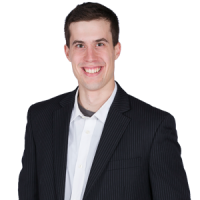A Winnipeg nurse says the city’s emergency departments are losing skilled nurses due to burnout, exhaustion and workloads — and more will follow suit unless changes happen soon.

“It’s become an environment where it’s just not sustainable to continue to come and work with the level of acuity, with the kind of sick patients that we have,” Kristin Gebhardt said.
Gebhardt worked as an emergency department nurse at St. Boniface hospital for more than four years before she quit in April when her concerns and frustrations grew too much for her to handle.
“The workload has become something that’s just, it’s really not manageable for nurses to do what (needs to be done) at the standard that we set for ourselves,” she said.
While Gebhardt left just two months ago, she watched as others quit before her and said she knows she wasn’t the last one.
“We’ve lost nurses who were assets to the department that are irreplaceable,” she said. “We’re losing the people, we’re driving them away in this current times and we’re going to have a huge hole to fill if we don’t change it.”
- Canadian man dies during Texas Ironman event. His widow wants answers as to why
- ‘Sciatica was gone’: hospital performs robot-assisted spinal surgery in Canadian first
- Canadians more likely to eat food past best-before date. What are the risks?
- Treatment from female doctors leads to lower death rates, study finds
She said Winnipeg has suffered chronic nursing shortages for years and the COVID-19 pandemic has just exacerbated an already unravelling situation.
“When COVID came around, now we’re dealing with the same staff shortage crisis and some of our teammates are being pulled from our department to go support ICU (intensive care unit), while at the same time we’re now seeing, again, sicker, more acute patients coming through the door, needing to be intubated, needing to be put on life support medications, and there’s nowhere for them to go,” she said.
As of April, Winnipeg’s three hospitals that still house emergency departments had the highest nursing vacancy rates in the city, according to data provided by the Winnipeg Regional Health Authority.
| Site (hospital-wide) | Vacancy rate April 2021 | Vacancy rate April 2020 | Vacancy rate April 2019 |
| HSC | 18.3% | 15.6% | 14.1% |
| Concordia | 12.7% | 7.6% | 19.2% |
| Grace | 18.9% | 15.5% | 16.8% |
| Seven Oaks | 13.1% | 13.1% | 16.2% |
| St. Boniface | 19.3% | 17.0% | 19.2% |
| Victoria | 11.3% | 7.4% | 12.0% |
Last weekend a group of Winnipeg doctors from all three of the city’s emergency rooms wrote a letter to the province and Premier Brian Pallister to express their “grave concern” over a shortage of senior emergency department nurses.
Signed by more than 60 doctors from the Health Sciences Centre, St. Boniface Hospital and Grace Hospital, the letter documents what they call a situation that is “critical, unsustainable and in need of immediate action.”
“There is a very strong concern that the levels of nurse vacancies is a critical point. We see beds that are closing. We see the morale of our colleagues and our friends that are really at rock bottom. And we don’t see any end in sight to this,” signee Dr. Noam Katz said.

In April, a Shared Health spokesperson told Global News a lack of senior practicum nursing students in facilities over the past year due to COVID-19 had adversely impacted recruitment efforts.
“Fortunately, all programs currently have students and are in the process of hiring them as they graduate, which will help to address current vacancy levels,” the spokesperson said.
At that point at HSC Winnipeg, 75 students were about to complete their practicum, with another 45 students starting on May 10 and 62 scheduled to begin in June.
But Katz said it doesn’t help fill the void of the senior nurses that are leaving.
He and his colleagues are worried nurses without experience may miss things a senior nurse would, despite “their skill, training and enthusiasm.”
“These are situations that you can’t just walk into and expect to be good at,” he said. “It’s just not by any stretch the ideal situation. There is a concern that it could lead to inefficiencies in terms of our ability to provide adequate care. And there’s always that underlying possibility of medical error.”
Gerhardt echoed those concerns, recounting day after day working 16-hour shifts with few breaks.
“You’re just constantly trying to keep your head above water the whole way through the day, like there’s no reprieve, there’s no break. You just go from one crisis to the next crisis,” she said. “You’re doing it with less staff and supports than you should have and that you feel that you need in order to do the job.”








Comments